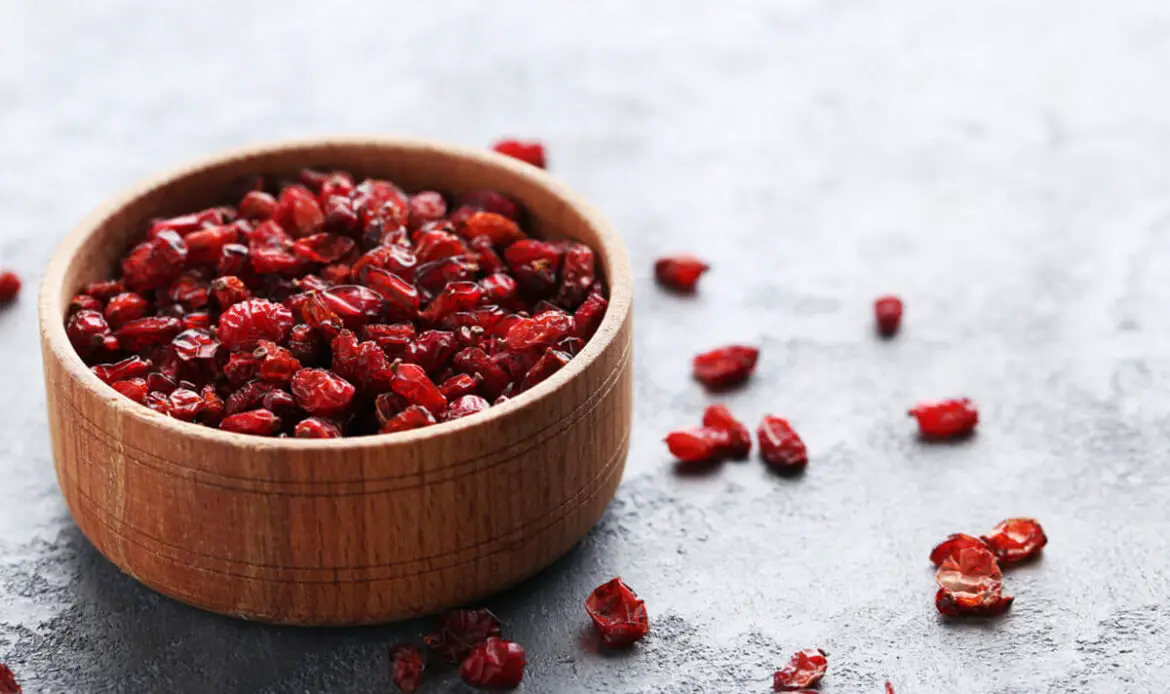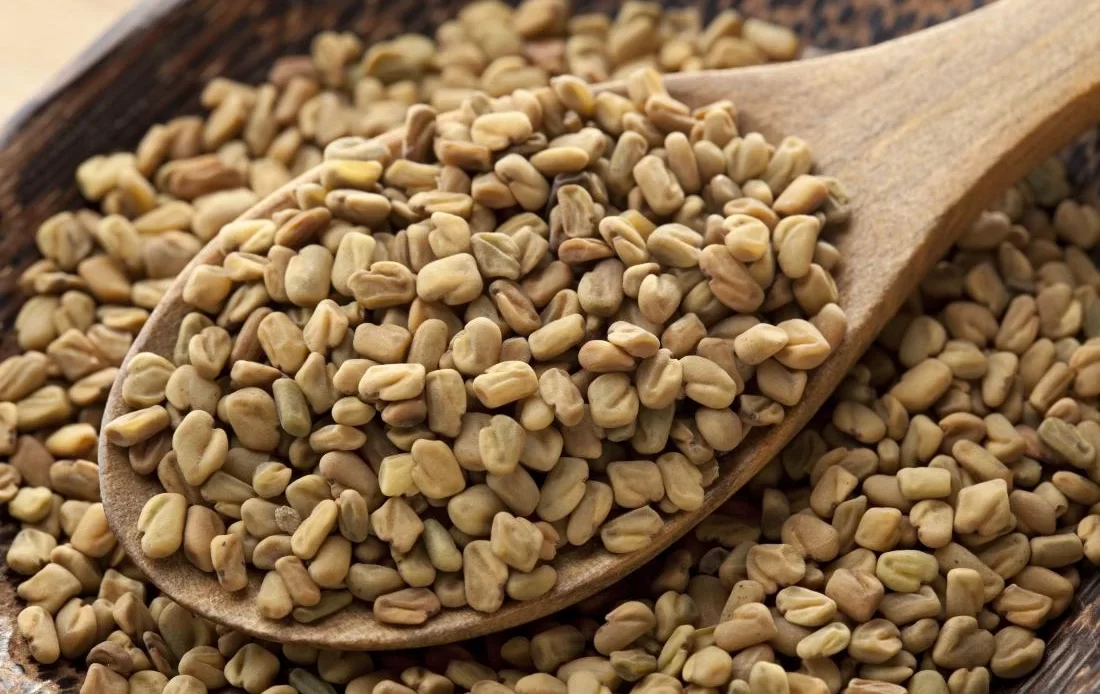Blood sugar spikes are becoming a growing concern for many people, especially with the modern diet filled with refined sugars and processed foods. When blood sugar levels fluctuate too wildly, it can lead to a range of health issues, including fatigue, weight gain, and even more serious conditions like type 2 diabetes. But fear not! You can take control of your blood glucose levels with the help of natural supplements. In this article, we’ll explore the top natural glucose support supplements that can help you conquer those pesky blood sugar spikes and maintain a healthy balance.
What Are Blood Sugar Spikes?
Blood sugar spikes occur when your blood glucose levels rise sharply after eating. This is often due to consuming high-carbohydrate foods that are quickly converted into sugar by the body. These spikes can leave you feeling sluggish, irritable, and hungry shortly after eating, creating a vicious cycle of overeating and poor dietary choices.
Causes of Blood Sugar Spikes
Several factors can contribute to blood sugar spikes, including:
- Diet: Consuming high amounts of refined carbohydrates and sugars.
- Lack of Physical Activity: Sedentary lifestyles can exacerbate insulin resistance.
- Stress: Stress hormones like cortisol can increase blood sugar levels.
- Sleep Deprivation: Poor sleep quality disrupts insulin sensitivity.
Health Risks Associated with Unmanaged Blood Sugar
Unmanaged blood sugar spikes can lead to serious health issues over time, such as:
- Type 2 Diabetes: Prolonged high blood sugar levels can lead to insulin resistance and eventually diabetes.
- Heart Disease: High blood sugar can damage blood vessels and lead to cardiovascular problems.
- Weight Gain: Insulin spikes can cause the body to store more fat, particularly around the abdomen.
Diet and Lifestyle in Managing Blood Sugar
Importance of a Balanced Diet
One of the most effective ways to manage blood sugar is by eating a balanced diet rich in fiber, protein, and healthy fats. These nutrients slow down the absorption of sugar into the bloodstream, preventing spikes.
Exercise and Physical Activity
Regular physical activity helps improve insulin sensitivity, meaning your body can use glucose more effectively, reducing the risk of spikes.
Stress Management and Sleep
Managing stress through techniques like meditation, deep breathing, and yoga can help keep cortisol levels in check. Additionally, getting enough quality sleep is crucial for maintaining healthy blood glucose levels.
Benefits of Using Natural Supplements Over Pharmaceuticals
Using natural supplements for diabetes management offers several benefits compared to pharmaceuticals, though it’s important to note that supplements should complement, not replace, conventional treatments. Here’s a look at some of the advantages of natural supplements over pharmaceuticals:
1. Fewer Side Effects
Natural supplements often have fewer side effects compared to pharmaceutical drugs. While pharmaceuticals can have a range of side effects, including gastrointestinal issues, allergic reactions, or long-term health complications, natural supplements like cinnamon, fenugreek, or magnesium typically have milder side effects, if any. For example, cinnamon may help regulate blood sugar with minimal adverse effects compared to some diabetes medications.
2. Improved Tolerability
Many people find natural supplements more tolerable than pharmaceutical drugs. Supplements such as fenugreek or Gymnema sylvestre are generally well-accepted and can be easier to incorporate into daily routines without causing significant discomfort. This can lead to better adherence to a diabetes management plan.
3. Support for Overall Health
Natural supplements often offer additional health benefits beyond blood sugar control. For instance, magnesium supports not only blood sugar levels but also heart health and muscle function, while cinnamon has antioxidant properties that can improve overall health and reduce inflammation. These supplementary benefits contribute to a more holistic approach to managing diabetes and overall well-being.
4. Complementary to Conventional Treatments
Natural supplements can be used alongside conventional diabetes treatments to enhance their effectiveness. For example, berberine can complement prescribed medications by improving insulin sensitivity and lowering blood glucose levels. When used under medical supervision, supplements can optimize diabetes management and potentially reduce the need for higher doses of pharmaceutical drugs.
5. Personalized and Flexible Use
Natural supplements allow for personalized and flexible use. Individuals can tailor their supplement regimen to their specific health needs, preferences, and dietary restrictions. For instance, those who prefer not to take synthetic medications can opt for supplements like bitter melon or alpha-lipoic acid as part of their diabetes management strategy.
6. Potential Cost Savings
In some cases, natural supplements may be more cost-effective than pharmaceutical drugs, especially for those without comprehensive insurance coverage. While the cost of supplements can vary, many are relatively affordable compared to the ongoing expenses of prescription medications and their associated healthcare costs.
7. Focus on Lifestyle and Dietary Adjustments
Many natural supplements are used in conjunction with lifestyle and dietary changes, which are crucial for effective diabetes management. Supplements such as chromium or green tea extract are often part of a broader health plan that includes diet, exercise, and weight management. This comprehensive approach can lead to more sustainable and effective blood sugar control.
8. Potential for Long-Term Health Benefits
Natural supplements may offer long-term health benefits that extend beyond blood sugar control. For example, alpha-lipoic acid has neuroprotective properties that may benefit nerve health, which is particularly important for individuals with diabetes-related neuropathy. Supplements that promote overall wellness can help address long-term complications and improve quality of life.
Top Natural Supplements to Conquer Blood Sugar Spikes
1. Cinnamon

Its ability to regulate blood sugar comes from its bioactive components, such as cinnamaldehyde, which has been found to increase insulin sensitivity. Improved insulin sensitivity means that the body can use insulin more effectively to lower blood sugar levels, making cinnamon a potentially useful supplement for individuals with insulin resistance or type 2 diabetes.
Several studies have demonstrated the positive effects of cinnamon on blood sugar control. Research has shown that cinnamon can lower fasting blood glucose levels, which is the level of sugar in the blood after a period of not eating. Additionally, cinnamon has been observed to improve hemoglobin A1c (HbA1c) levels, which is a measure of average blood sugar control over the past two to three months. A reduction in HbA1c levels indicates better long-term blood sugar management, which is crucial for preventing diabetes-related complications such as neuropathy, retinopathy, and cardiovascular disease.
The recommended dosage of cinnamon for blood sugar control varies depending on the form and concentration of the supplement. Generally, 1-6 grams per day is suggested, which can be consumed in various ways. You can incorporate cinnamon into your diet by sprinkling it on oatmeal, yogurt, or cereal, adding it to smoothies, or using it in cooking and baking. For those who prefer a more convenient option, cinnamon is also available in capsule form as a dietary supplement. It is advisable to take cinnamon with meals to enhance its blood sugar-lowering effects and to reduce the risk of gastrointestinal discomfort that some people might experience.
2. Berberine

Berberine is a natural compound found in several plants, such as barberry and goldthread, and has been used in traditional Chinese medicine for centuries. In recent years, it has gained attention for its potential to help manage blood sugar levels, especially in people with type 2 diabetes.
How Berberine Helps Control Blood Sugar
Berberine helps regulate blood sugar levels primarily by activating an enzyme called AMPK (AMP-activated protein kinase), which plays a crucial role in energy balance and metabolism. Activating AMPK helps improve the body’s ability to use glucose and increases insulin sensitivity. This means the body can use insulin more effectively to lower blood sugar levels.
Berberine also helps control blood sugar through several other mechanisms:
- Reduces glucose production in the liver: Berberine decreases the liver’s production of glucose, which helps lower blood sugar levels.
- Improves glucose uptake: It enhances the ability of cells to absorb glucose from the bloodstream, which helps reduce high blood sugar levels.
- Slows carbohydrate digestion: Berberine can slow the breakdown of carbohydrates into sugar, preventing sharp increases in blood sugar after meals.
Dosage Guidelines for Blood Sugar Control
To help manage blood sugar levels, the typical recommended dosage of berberine is 500 mg, taken two to three times a day before meals. This timing helps maximize its effects on blood sugar, particularly after eating when blood sugar levels tend to rise. It is advisable to start with a lower dose, such as 300 mg once or twice a day, to minimize potential side effects like stomach upset. Gradually increasing the dose can help the body adjust and enhance the blood sugar-lowering effects.
3. Alpha-Lipoic Acid (ALA)
Alpha-Lipoic Acid (ALA) is a naturally occurring compound that functions as a powerful antioxidant in the body. It plays a significant role in energy metabolism and has been found to have several health benefits, particularly in managing blood sugar levels and improving insulin sensitivity. ALA is both water- and fat-soluble, allowing it to work throughout the entire body, including both the cellular membrane and cytoplasm, to combat oxidative stress.
How Alpha-Lipoic Acid Helps with Blood Sugar
1. Improves Insulin Sensitivity:
ALA makes the body’s cells more responsive to insulin, the hormone that helps move sugar from the blood into cells. This increased sensitivity means that your cells can absorb glucose more effectively, leading to lower blood sugar levels.
2. Reduces Oxidative Stress:
Oxidative stress is an imbalance between harmful molecules (free radicals) and antioxidants in the body, which can lead to insulin resistance. ALA helps neutralize these free radicals, reducing oxidative stress and potentially improving insulin sensitivity.
3. Supports Glucose Metabolism:
ALA also helps your cells use glucose more efficiently by supporting energy production in the mitochondria, the powerhouses of cells. This helps keep blood sugar levels in check.
How to Take Alpha-Lipoic Acid
The recommended dose for ALA is 600 mg per day, ideally taken before meals to maximize its effects. ALA is available in supplement form, which is the most effective way to get enough of this compound.
Dietary Sources of Alpha-Lipoic Acid
While supplements are the best way to get a sufficient dose of ALA, it can also be found in small amounts in foods like:
- Spinach
- Broccoli
- Potatoes
- Brussels sprouts
4. Bitter Melon

Bitter melon has been utilized to treat a variety of conditions, including digestive disorders, skin problems, and infections. However, its most notable health benefit is its potential to help regulate blood sugar levels, making it a valuable natural remedy for managing diabetes and metabolic disorders. The fruit’s effectiveness in lowering blood sugar is attributed to several bioactive compounds that mimic the actions of insulin and support glucose metabolism, offering a natural way to manage blood sugar without the side effects associated with some pharmaceuticals.
How Bitter Melon Helps Lower Blood Sugar
Bitter melon contains several bioactive compounds that contribute to its glucose-lowering effects:
1. Mimics Insulin: Bitter melon contains compounds such as charantin, vicine, and polypeptide-p (also known as plant insulin) that can mimic the action of insulin. These compounds help reduce blood sugar levels by promoting the uptake of glucose into the cells, similar to how insulin works in the body. This can help lower blood sugar levels naturally, especially in people with insulin resistance or type 2 diabetes.
2. Enhances Glucose Metabolism: Bitter melon has been shown to improve the body’s ability to metabolize glucose. It can help increase the activity of enzymes involved in glucose metabolism, allowing the body to use glucose more effectively for energy rather than letting it build up in the bloodstream.
3. Reduces Absorption of Glucose in the Intestines: Certain components of bitter melon may slow down the digestion and absorption of carbohydrates in the intestines, leading to a slower release of glucose into the bloodstream. This can help prevent sudden spikes in blood sugar levels after meals.
4. Antioxidant Properties: Bitter melon is rich in antioxidants, which help reduce oxidative stress in the body. Oxidative stress is linked to insulin resistance and the development of type 2 diabetes. By reducing oxidative stress, bitter melon may help improve insulin sensitivity and overall blood sugar control.
Ways to Consume Bitter Melon
Bitter melon can be consumed in several forms to harness its glucose-lowering benefits:
- As a Vegetable: Bitter melon can be cooked and eaten as part of a meal. It is often used in stir-fries, soups, or curries. Cooking it with other vegetables and spices can help reduce its bitter taste while retaining its health benefits.
- Juice Form: Bitter melon can be juiced and consumed as a drink. This method provides a concentrated dose of its active compounds. The recommended amount for bitter melon juice is 50-100 mL per day. It’s important to note that the juice is quite bitter, and some people may find it more palatable when mixed with other vegetables or fruits.
- Capsule or Supplement Form: For those who find the taste of bitter melon unpleasant, it is also available in capsule or supplement form. This is a convenient option for ensuring a consistent dosage without having to consume the bitter fruit directly. The typical dosage for bitter melon in capsule form is 500 mg per day.
Recommended Dosage and Considerations
The effective dosage of bitter melon can vary depending on the form in which it is consumed. For juice, a common recommendation is 50-100 mL per day, while for capsules, 500 mg per day is typical. It’s important to start with a lower dose to see how your body reacts and to avoid any potential side effects such as gastrointestinal discomfort or hypoglycemia (low blood sugar).
5. Chromium

Chromium is a trace mineral that plays a crucial role in regulating blood sugar levels by enhancing the action of insulin, the hormone responsible for controlling glucose in the blood. It supports the effectiveness of insulin, making it easier for glucose to enter cells where it can be used for energy. This helps maintain stable blood sugar levels and improves the body’s ability to manage glucose. By improving insulin sensitivity and glucose metabolism, chromium is especially beneficial for individuals with insulin resistance or type 2 diabetes, helping to reduce blood sugar spikes and overall glucose levels.
How Chromium Supports Blood Sugar Control
1. Enhances Insulin Sensitivity:
Chromium helps improve insulin sensitivity by enhancing the ability of insulin to bind to its receptors on the surface of cells. This improves the effectiveness of insulin in transporting glucose from the bloodstream into cells, where it can be used for energy. When cells respond better to insulin, less insulin is required to keep blood sugar levels stable, reducing the risk of insulin resistance—a condition where the body’s cells become less responsive to insulin, often leading to type 2 diabetes.
2. Improves Glucose Metabolism:
Chromium plays a role in activating certain enzymes involved in glucose metabolism. By helping to facilitate the breakdown and use of glucose in the body, chromium can help maintain stable blood sugar levels and reduce spikes in glucose levels after meals.
3. Reduces Insulin Resistance:
Research suggests that chromium supplementation may reduce insulin resistance, particularly in people with type 2 diabetes or metabolic syndrome. This effect is believed to occur because chromium improves the signaling pathways that insulin uses to help glucose enter cells. As a result, chromium can help lower fasting blood sugar levels and HbA1c (a measure of long-term blood sugar control), which are important markers for diabetes management.
4. Supports Appetite Regulation and Weight Management:
Some studies indicate that chromium supplementation may help with appetite regulation and reduce cravings for carbohydrates, which can be beneficial for people managing diabetes or those trying to maintain a healthy weight. By supporting stable blood sugar levels, chromium may help prevent the rapid fluctuations in glucose that can lead to hunger and overeating.
Recommended Daily Intake and Supplementation
The recommended daily intake of chromium for adults is around 200 micrograms (mcg), although some studies have used higher doses, up to 1,000 mcg per day, for therapeutic purposes. The body’s requirement for chromium can vary based on age, sex, and health status. People with diabetes or insulin resistance may benefit from higher doses, but it is important to consult with a healthcare provider before starting supplementation, as excessive chromium intake can lead to potential side effects.
Chromium is available in several forms, including:
- Chromium picolinate: The most commonly used form in supplements, known for its high bioavailability.
- Chromium chloride: Another form used in supplements, although it may not be as well absorbed as chromium picolinate.
- Chromium nicotinate: A form that combines chromium with niacin (vitamin B3) to enhance absorption and utilization in the body.
Food Sources of Chromium
While chromium supplements are widely available, it is also possible to obtain chromium naturally from a balanced diet. Foods that are good sources of chromium include:
- Broccoli
- Barley
- Oats
- Green beans
- Whole grains
- Nuts and seeds
- Lean meats
6. Fenugreek

Fenugreek seeds, derived from the Trigonella foenum-graecum plant, are known for their various health benefits, particularly in managing blood sugar levels. These seeds have been used in traditional medicine and cooking for centuries, and modern research supports their effectiveness in controlling blood glucose levels.
How Fenugreek Seeds Help Regulate Blood Sugar
1. Slows Down Carbohydrate Absorption: Fenugreek seeds contain soluble fiber, primarily in the form of galactomannan, which helps slow the digestion and absorption of carbohydrates in the intestines. By forming a gel-like substance when mixed with water, this fiber reduces the rate at which glucose is released into the bloodstream after meals. This helps prevent rapid spikes in blood sugar levels, contributing to more stable glucose control.
2. Improves Insulin Sensitivity: The active compounds in fenugreek, including trigonelline and 4-hydroxyisoleucine, have been shown to enhance insulin sensitivity. Improved insulin sensitivity means that the body’s cells respond better to insulin, allowing glucose to be absorbed more effectively and reducing overall blood sugar levels. This is particularly beneficial for individuals with insulin resistance or type 2 diabetes, as it helps the body manage glucose more efficiently.
3. Promotes Healthy Blood Sugar Levels: Regular consumption of fenugreek seeds can help maintain healthy blood sugar levels by supporting better glucose metabolism. Studies have demonstrated that fenugreek can help lower fasting blood glucose levels and improve markers of long-term blood sugar control, such as HbA1c.
How to Incorporate Fenugreek Seeds into Your Diet
1. Soaked Fenugreek Seeds: A common way to consume fenugreek seeds is to soak them in water overnight. This process softens the seeds and makes their beneficial compounds more available. In the morning, you can eat the soaked seeds directly or mix them with other foods. Soaking also helps reduce the seeds’ bitterness and can make them easier to digest.
2. Adding to Meals: Fenugreek seeds can be added to various dishes to incorporate their health benefits into your diet. They are commonly used in:
- Curries: Add a teaspoon or two of fenugreek seeds to curries and stews to impart a unique flavor and benefit from their blood sugar-lowering properties.
- Soups: Incorporate fenugreek seeds into soups or broths for added nutritional value.
- Spice Blends: Ground fenugreek seeds can be included in spice blends or seasoning mixes to enhance the flavor and add health benefits to your meals.
3. Supplements: Fenugreek seeds are also available in supplement form, including capsules and powders. This can be a convenient option for those who prefer not to include the seeds directly in their diet. The typical dosage for fenugreek supplements is 2-5 grams per day, though it is important to follow the specific dosage instructions provided on the supplement label or by a healthcare professional.
Fenugreek seeds are a valuable addition to a diet aimed at managing blood sugar levels. They help lower blood glucose by slowing carbohydrate absorption and improving insulin sensitivity. Consuming fenugreek seeds in their whole form, soaking them, or incorporating them into meals can provide significant benefits. For those seeking a more convenient option, fenugreek supplements are also available. As with any supplement or dietary change, consulting a healthcare professional is advisable to ensure it fits well with your overall health plan.
7. Gymnema Sylvestre

Gymnema Sylvestre is used to manage various health conditions, particularly those related to blood sugar control. Its scientific name, Gymnema sylvestre, translates to “sugar destroyer” in Sanskrit, highlighting its historical use in reducing sugar cravings and managing diabetes.
How Gymnema Sylvestre Supports Blood Sugar Control
1. Reduces Sugar Absorption: One of the key mechanisms by which Gymnema sylvestre helps manage blood sugar levels is by reducing the absorption of sugar in the intestines. It contains compounds known as gymnemic acids, which bind to the taste receptors on the tongue and block the absorption of sugar molecules in the gastrointestinal tract. This decreases the amount of sugar that enters the bloodstream after a meal, leading to lower blood sugar levels.
2. Enhances Insulin Function: Gymnema sylvestre is believed to have a beneficial effect on insulin function. Some studies suggest that it may enhance the ability of the pancreas to produce insulin and improve the body’s response to this hormone. This can lead to better regulation of blood sugar levels and improved overall glucose metabolism.
3. Reduces Sugar Cravings: By blocking the taste of sweetness, Gymnema sylvestre can help reduce sugar cravings and food intake. This can be particularly useful for individuals trying to manage their weight or control their sugar intake, as it helps diminish the desire to consume sugary foods and beverages.
4. Promotes Healthy Blood Sugar Levels: Regular use of Gymnema sylvestre has been associated with improved blood sugar control in individuals with diabetes. It may help lower fasting blood glucose levels and improve markers of long-term blood sugar control, such as HbA1c. The herb’s ability to balance blood sugar levels can contribute to better overall management of diabetes and metabolic health.
Dosage and Usage Recommendations
Standard Dosage: The typical recommended dosage of Gymnema sylvestre for blood sugar control is 200-400 mg per day. This dosage can vary depending on the specific product and the concentration of gymnemic acids. It is important to follow the dosage instructions provided on the supplement label or by a healthcare professional to ensure safe and effective use.
Forms of Consumption:
- Capsule Form: Gymnema sylvestre is commonly available in capsule or tablet form, which is a convenient option for consistent daily use. Capsules provide a standardized dose of the herb and are easy to incorporate into a daily supplement regimen.
- Tea Form: Gymnema sylvestre can also be consumed as an herbal tea. Brewing the leaves of the plant to make tea is a traditional way of using this herb. This method may be less concentrated compared to capsules but can still provide beneficial effects when consumed regularly.
8. Magnesium

Magnesium is an essential mineral that plays a crucial role in maintaining overall health, particularly in regulating blood sugar levels and supporting insulin function. Its significance in metabolic health has garnered attention due to its potential benefits in managing blood sugar levels and reducing the risk of insulin resistance.
How Magnesium Supports Blood Sugar Control
1. Regulates Insulin Activity: Magnesium is involved in the action of insulin, a hormone that helps regulate blood glucose levels. It assists in the process of insulin binding to its receptors on cell surfaces, which is necessary for glucose to enter cells from the bloodstream. Adequate magnesium levels help ensure that insulin works efficiently, promoting effective glucose uptake and maintaining stable blood sugar levels.
2. Reduces Insulin Resistance: Insulin resistance occurs when the body’s cells become less responsive to insulin, leading to higher blood sugar levels. Magnesium has been shown to enhance insulin sensitivity, making cells more responsive to insulin and reducing the likelihood of developing insulin resistance. Studies suggest that low magnesium levels are associated with a higher risk of insulin resistance and type 2 diabetes.
3. Supports Glucose Metabolism: Magnesium is involved in various enzymatic reactions that are crucial for glucose metabolism. It helps regulate the enzymes that are responsible for breaking down glucose and converting it into energy. By supporting these metabolic processes, magnesium contributes to maintaining normal blood sugar levels and preventing fluctuations.
4. Mitigates Inflammation: Chronic inflammation is a factor in the development of insulin resistance and type 2 diabetes. Magnesium has anti-inflammatory properties that can help reduce systemic inflammation, thereby supporting better insulin function and glucose control.
Ensuring Adequate Magnesium Intake
1. Dietary Sources of Magnesium: Incorporating magnesium-rich foods into your diet is an effective way to meet your daily magnesium needs. Some excellent sources of magnesium include:
- Leafy Greens: Spinach, kale, and Swiss chard are high in magnesium.
- Nuts: Almonds, cashews, and peanuts are good sources.
- Seeds: Pumpkin seeds, sunflower seeds, and flaxseeds are rich in magnesium.
- Whole Grains: Brown rice, quinoa, and whole wheat products contain magnesium.
- Legumes: Beans, lentils, and chickpeas are also good sources.
2. Supplements: For those who may not get enough magnesium from their diet, supplements can help meet the daily recommended intake. Magnesium supplements come in various forms, such as magnesium citrate, magnesium glycinate, and magnesium oxide. Each form has different levels of bioavailability and absorption, so it’s important to choose one that fits your needs.
The recommended daily intake of magnesium is approximately 300-400 mg for adults. This amount may vary depending on age, sex, and individual health needs. It’s advisable to consult with a healthcare provider to determine the appropriate dosage for supplementation if needed.
How to Choose the Right Supplement for You
Choosing the right supplement depends on your individual health needs and circumstances. Here are some factors to consider:
- Health Goals: Identify your specific blood sugar management needs.
- Current Medications: Check for any potential interactions with your existing medications.
- Consulting with Healthcare Professionals: Always consult with a healthcare provider before starting any new supplement to ensure it’s safe and appropriate for you.
Managing blood sugar levels is crucial for overall health, especially in today’s fast-paced world where dietary and lifestyle habits can often lead to imbalances. By incorporating natural glucose support supplements like cinnamon, berberine, and magnesium into your daily routine, you can take proactive steps to conquer blood sugar spikes and maintain optimal health.

